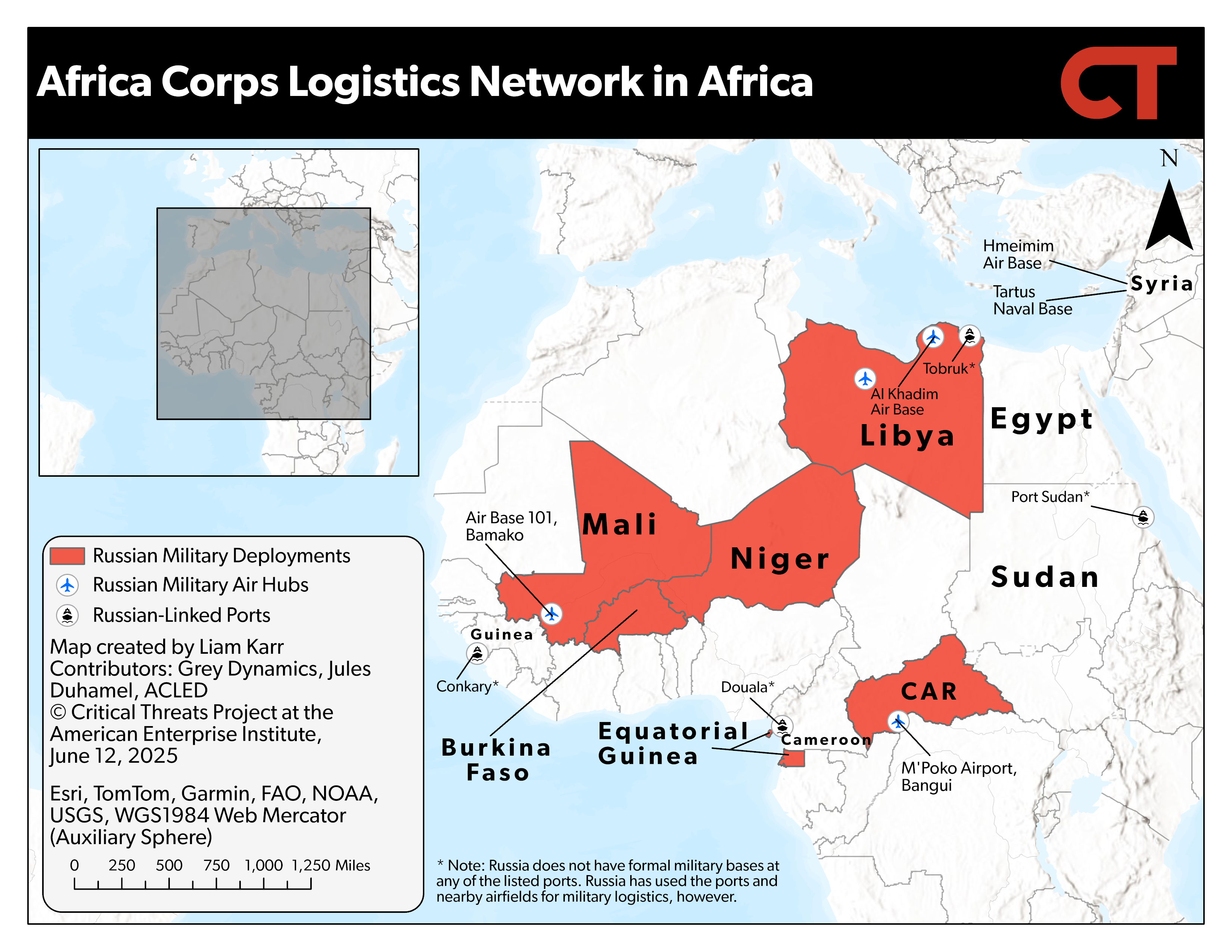Russia Expands Influence in West Africa, Challenging U.S. Partnerships in Togo
In a significant shift in global geopolitics, Russia is intensifying its efforts to establish a foothold in West Africa, particularly in the wake of conflicts and the rise of autocratic regimes. A recent analysis by the Critical Threats Project at the American Enterprise Institute (AEI) highlights how Moscow is capitalizing on opportunities left by former colonial powers, notably France, while simultaneously challenging U.S. partnerships in the region.
Background & Context
The historical context of West Africa is marked by decades of foreign intervention and exploitation, primarily by European powers. As these nations grapple with the consequences of colonialism, they are increasingly turning to new partnerships to address their security and economic needs. Russia"s growing influence in the region, particularly through alliances with countries like Mali, Niger, and Burkina Faso, underscores a strategic pivot that could reshape the landscape of international relations in Africa.
The AEI report indicates that Russia is not merely seeking to fill a power vacuum but is also attempting to establish a logistics network that would enhance its operational capabilities in the region. This strategy includes expanding its reach to coastal nations such as Togo, which provides critical access to Atlantic ports for Russia"s landlocked allies. Such moves are emblematic of Moscow"s broader ambitions to assert itself as a dominant player in global geopolitics.
Key Developments
Recent developments in West Africa have seen Russia fortifying its partnerships with the Alliance of Sahel States (AES), which includes Mali, Niger, and Burkina Faso. These nations have turned to Russia for military assistance and economic partnerships, especially amid ongoing security challenges posed by militant groups. The report highlights that Russia"s engagement has been welcomed by these states, which are disillusioned with traditional Western allies.
The focus on Togo represents a critical juncture in this geopolitical contest. As the U.S. maintains its longstanding partnership with Togo, the emergence of Russian influence threatens to complicate these relations. Togo and its neighbors are now navigating a delicate balancing act, seeking to engage with both Moscow and Washington to secure favorable economic and military deals. This dual approach could lead to a more fragmented and competitive environment for foreign influence in the region.
\n\n
Image for Russia Expands Influence in West Africa, Challenging U.S. Partnerships in Togo
Broader Impact
The implications of Russia"s growing presence in West Africa extend beyond immediate bilateral relations. Experts suggest that this shift may embolden other authoritarian regimes in the region and provide a model for governance that mirrors Moscow"s own autocratic practices. The AEI analysis warns that as Russia fills the void left by traditional powers, it could exacerbate existing conflicts and undermine democratic governance.
Furthermore, the competition for influence in Togo could have significant ramifications for U.S. foreign policy strategies in Africa. Washington"s ability to maintain its partnerships and influence in the region may depend on its responsiveness to the evolving geopolitical landscape, especially as nations like Togo seek to diversify their alliances. This situation echoes similar dynamics seen in other parts of the world, where countries are reassessing their international partnerships amid shifting power balances, as highlighted in recent developments in South Asia.
What"s Next
Looking ahead, the contest for influence in West Africa is likely to intensify, with both Russia and the U.S. seeking to solidify their positions. The U.S. may need to recalibrate its approach to foreign aid and military cooperation in the region to counter Russia"s advances effectively. This could involve increasing engagement with Togo and other nations in the AES, fostering economic partnerships, and addressing security concerns that have driven these countries towards Moscow.
As the situation unfolds, the international community will be watching closely to see how these dynamics shape the future of West Africa. With both Russia and the U.S. vying for influence, the outcomes of these engagements could redefine not just regional politics but also the global balance of power. The stakes are high, and the implications of this geopolitical rivalry will resonate far beyond the borders of West Africa.

Image for Russia Expands Influence in West Africa, Challenging U.S. Partnerships in Togo


![[Video] Heavy clashes and gunfire reported in Baghdad, Iraq](/_next/image?url=%2Fapi%2Fimage%2Fthumbnails%2Fthumbnail-1768342239932-848qsh-thumbnail.jpg&w=3840&q=75)




![[Video] Gunfire between Iraqi security forces and Sadr militias in Baghdad](/_next/image?url=%2Fapi%2Fimage%2Fthumbnails%2Fthumbnail-1768343508874-4redb-thumbnail.jpg&w=3840&q=75)
